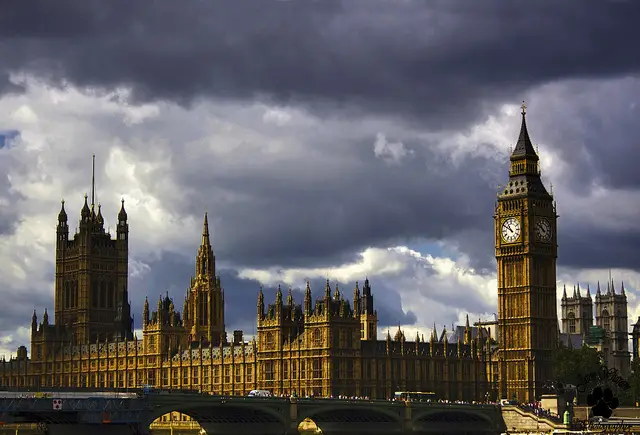Those people who signed a recent petition calling for the Parliament to regulate ferry prices will be opening emails this morning to read the Government’s response.
The petition “Empower the UK Government or Parliament to regulate ferry prices” has so far been signed by 17,355 people (at time of publishing).
No plans to regulate ferry prices
The crux of the Government’s response is that there are “no plans to regulate ferry prices in England”.
They say,
“Ferry companies in the UK operate in a competitive, commercial market, with the operators competing on price, quality, frequency and speed of their services.”
It goes on to explain that provision of frequent crossings, from a selection of locations, and at a range of prices, does not indicate, in their view, evidence of a market failure or other reasons.
Petition committee to review
The next stage for the petition is for the Petitions Committee – which is made up of 11 cross-party MPs – to look at this petition and its response.
They do have the power to press the government for action and gather evidence. If the petition – which runs until 20th February 2019 – reaches 100,000 signatures, it will be considered for debate in Parliament.
The full response
Government’s response in full:
There are no plans to regulate ferry prices in England. Ferry companies provide diverse services at a range of prices. There is no evidence of market failure to require regulatory intervention.
Ferry companies in the UK operate in a competitive, commercial market, with the operators competing on price, quality, frequency and speed of their services. In locations such as the Isle of Wight there is a provision of frequent crossings, from a selection of locations, and at a range of prices.
At present such provision does not indicate evidence of a market failure or other reasons that may justify government regulatory intervention. As such the Government has no plans to regulate ferry prices. However, in circumstances where a commercially provided ferry link is at risk, Government would consider options to maintain that link as a lifeline service.
UK ships and ports operate on a private basis, without public sector support, so the ferry companies concerned are private sector entities. The cost of a service, its quality, and frequency are therefore a commercial decision for the ferry operator, and for the company concerned to determine the commercial viability of differing service and fare levels in their current operating environment.
The exception to this is Scotland, where the Scottish Government subsidises, and also regulates fares for, a number of “lifeline” ferry services to connect remote and lightly populated locations that would not otherwise be commercially served due to a lack of demand.
This is not the case for the Isle of Wight where there are multiple operators providing up to approximately 250 sailings per day, and close to 100,000 scheduled sailings per year. Over 8.5 million passengers carried in 2017 (Table SPAS0201)
The economic impact on the island and passengers using the ferry services has been considered on two occasions. Most recently the Isle of Wight Transport Infrastructure Task Force (TITF) was established in summer 2016 to receive information and make proposals on a wide range issues vital to the Island’s future. As part of this a report was produced that assessed whether there is any correlation between economic performance and trends in ferry operations.
It noted that Isle of Wight GVA has been higher, and more consistent than, that of its mainland neighbours and is comparable with wider trends. The report also found that the island economy is changing and economic growth is being achieved with less cross-Solent travel.
In 2009, the Office of Fair Trading (OFT) investigated ferry services to and from the Isle of Wight, in particular whether there was a lack of competition, and if prices were too.
The OFT decided not to refer the ferry companies to the then Competition Commission and concluded that there existed some features of the market that prevent, restrict or distort competition “but that there is limited evidence of actual consumer detriment”.
At an individual level, we can understand that the issue of ferry fares may have an influence on people’s travel choices, particularly for those making regular cross-Solent trips, travelling at short notice, or undertaking peak time travel. Evidence cited in the report to TITF noted that, while the ferry is an asset in terms of attracting visitors, a significant proportion of people have a poor opinion of the ferry services’ value for money.
The ferry companies do offer discounted fares for regular and special users, such as season or multibuy, as well as for medical travel, that can improve the value for money for individual customers.
Overall, the two main reports produced on this issue do not indicate that there is a significant evidence of widespread economic or consumer impact. The available evidence at this time does not therefore support the regulation of ferry fares.
Though the OFT did not refer the case to the Competition Commission it said that this should not constrain a future consideration of the market if that became necessary. In the case of a competition issue or market problem today, for example businesses abusing their dominant position, it is now the Competition and Markets Authority who will potentially have an interest.
It is open to anyone to complain to the Competition and Markets Authority (CMA), citing as much evidence as possible. Whilst the CMA’s predecessors did not find behaviour requiring action, evidence of a material change in recent years could be pertinent. The CMA would then assess the case for further investigation depending on its current priorities and resources.
The procedure for making complaints to the CMA can be found here.
Department for Transport.
Seely: “I will continue to make the case”
On the announcement earlier this week of discounted fares for Islanders in receipt of housing benefit and council tax support, Isle of Wight Conservative MP, Robert Seely, said,
“I will continue to make the case that Islanders are being unfairly treated by what is effectively a duopoly.”
IW Greens: Need an MP that understands daily struggles
Isle of Wight Green Party’s parliamentary candidate, Vix Lowthion told OnTheWight,
“It’s no surprise whatsoever that our Conservative MP Bob Seely’s government have swiftly rejected the call from 17,000+ Islanders to regulate the prices we are forced to pay for our ferry service.
“The Conservative Party believes that all transport services are best provided by commercial companies free of regulation – yet this policy has led to an effective monopoly here on the Isle of Wight. The statement from the government completely ignores the situation in Scotland which has a public body to regulate and subsidise routes for the communities they serve.
“Bob Seely will continue to fail to work for Islanders on this issue because he and the Party he represents do not believe in regulation, subsidies and state intervention. How much longer must we put up with his transparent spin and bluster on this vital issue of greater accessibility for Island businesses and travellers?
“We need a different MP who really knows what it’s like for ordinary families to struggle to get across the Solent.”
IW Labour: “Contemptuous Government response”
Isle of Wight Constituency Labour Party spokesperson, Julian Critchley, told OnTheWight,
“An entirely predictable and entirely contemptuous response from a Conservative Government which always has, and always will, put the profits of private companies ahead of the interests of the citizens of this island and this country.
“Islanders will, I am sure, get the message loud and clear: the Conservative Party will never stand up for them against big business. With the ferries, as with all other issues surrounding our public services, our schools, our hospital, our care services and our emergency services, the Conservative government simply does not care what Islanders need.
“Ultimately, petitions will bounce off this uncaring Government. The only way to ensure that the Government works for Islanders, and not for big business, is to kick them out and elect a Labour MP in a Labour Government which will govern for the many, not the few.”
Article edit
10.10: Comment from Vix Lowthion added
11.40: Comment from Julian Critchely added
Image: jasonwharam under CC BY 2.0





